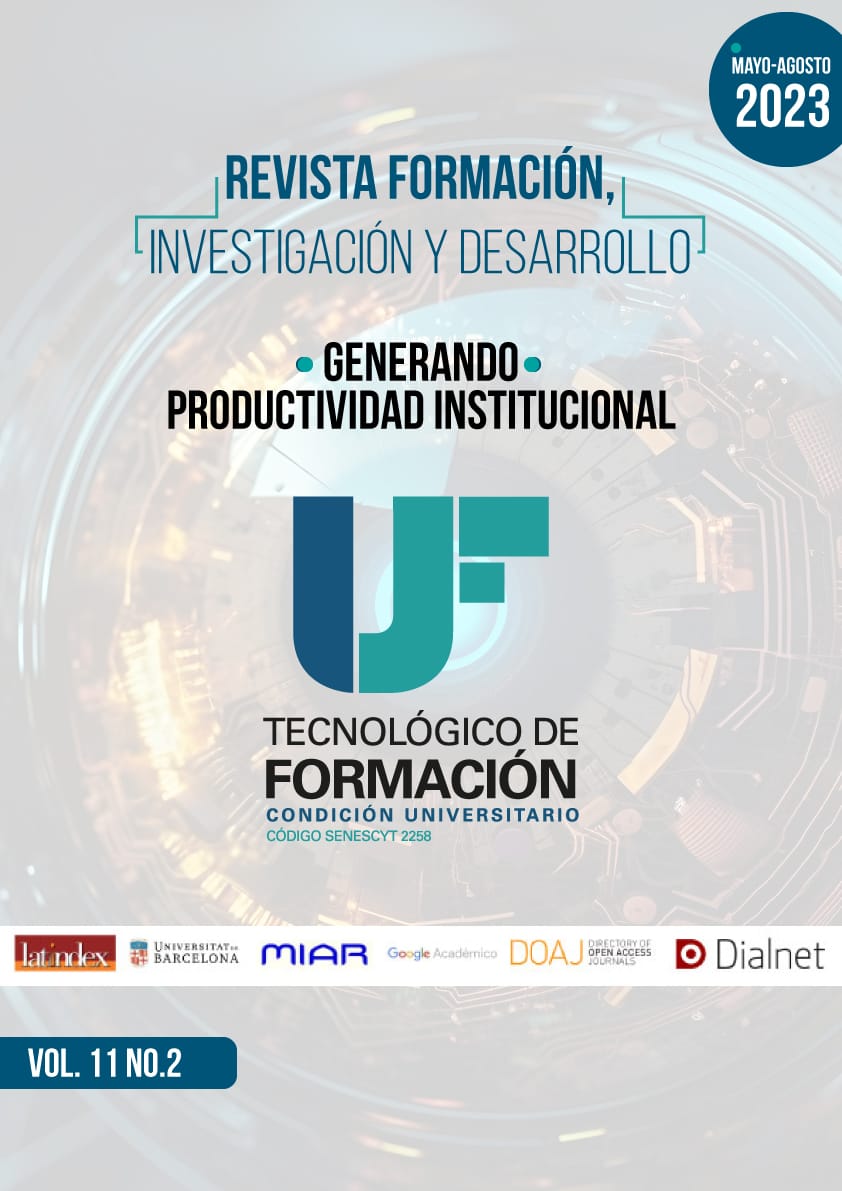Educational guidance for teachers to favor attention to children with learning difficulties
Main Article Content
Abstract
The purpose of educational guidance for teachers is to help the correct development of students by
personalizing the teaching-learning process adapted to the characteristics of each individual for
counseling students and families, from the professional activity of psychologists and counselors, with a
pedagogical and systematic character. The investigation is related to the educational orientation to the
primary teacher to favor the learning of the school, the educational needs, related to the pedagogical aids
that certain students require for their development and personal growth. Thus, these children are the
ones with learning limitations that, for different reasons, may need help to channel their cognitive process
in a normal way. In the same way, the importance of working with schoolchildren who have learning
difficulties is addressed so that they allow a better development and better quality of life. For the
development of the research, different scientific methods were used, such as observation, interviews,
analysis-synthesis and documentary analysis, where resources could be offered for their insertion in the
teaching-learning process based on the development of modes of action. The application of the different methods applied led to a change in the teacher's work from the elevation of professional motivation, self-
realization needs, self-assessment, acceptance of others, communication with others, attitudes among the assigned tasks for a better Personal development.
Article Details

This work is licensed under a Creative Commons Attribution-NonCommercial-ShareAlike 4.0 International License.
Este trabajo tiene licencia DE Atribución/Reconocimiento-NoComercial-CompartirIgual 4.0 Internacional. CC BY-NC-SA 4.0.
How to Cite
References
Blanco R. (1995). Innovación y Recursos Interactivos en el aula. En A. Marchesi, C. Coll, J. Placios. En Desarrollo Psicológica y Educacional.
Bermúdez Moris, R y Pérez Martínez, L.M (2012). Aprendizaje Formativo y Crecimiento Personal. Editorial Pueblo y Educación. Ciudad de la Habana.
Calvo, A, Haya, I., y Susinos, T (2012). El rol del orientador en la mejora escolar. Una investigación centrada en la voz del alumnado como elemento de cambio. Revista de investigación en Educación, vol. 10(2), p. 7.
Colectivo de autores (2015). Fundamentos de Psicología para Escuelas pedagógicas.
Castro Alegret. P. L. (2006). El maestro ante la atención de la sexualidad del alumno diferente. La Habana: Pueblo y Educación
Fernández, J. (2005). ¿Educación inclusiva en nuestros centros educativos? Sí, pero ¿cómo? Revista Contextos Educativos, 8-9, 135-145.
Gillis, J. S. (2011). CAS. Cuestionario de ansiedad infantil, 5.ª ed. Rev. Madrid: TEA.
Hernández, O. (2020). Percepción social de la orientación escolar en orientadores de Bogotá. Revista española de orientación y psicopedagogía, 31(1), 131-144.
López. M. R. (2000). Educación de alumnos con necesidades educativas especiales. Fundamentos y actualidad. La Habana: Pueblo y Educación.
Messi, L., Rossi, B., y Ventura, A. (2016). La Psicopedagogía en el ámbito escolar: ¿Qué y cómo representan los docentes la intervención psicopedagógica? Perspectiva Educacional, Formación de Profesores, 55(2), 110 -128.
MINEDUC (2018). Guía de Desarrollo Humano Integral, dirigida a docentes para la implementación de habilidades para la vida en el Sistema Nacional Educativo. Quito.
Ramírez, D. M. (2011). Estrategias de intervención educativa en el alumnado con trastorno por déficit de atención con hiperactividad-TDAH. Innovación y experiencias educativas, 45
Recarey Hernández. S C y Miriam Ojeda Rodríguez. (2007). Texto Básico para la asignatura Orientación Educativa II. La Habana: Pueblo y Educación.
Rodríguez. y Strang, Rodríguez, A. (19995). La influencia de la discusión grupal en los estados afectivos. Revista de Psicología Social, no.2, vol.1, pp. 161-171.
Rojas, A., Estévez, M., y Domínguez, Y. (2018). La formación psicopedagógica del docente como ámbito profesional. Revista Conrado, 14(62), 266-271.
ROMERO, J.F. (2001a): Programas para alumnos con dificultades en el Aprendizaje de la Comprensión Lectora y la Composición Escrita. En Apuntes editados para el trabajo en clase. Málaga.
Sánchez, P., González, M., y Zumba, I. (2016). El psicólogo educativo y su responsabilidad en la sociedad ecuatoriana actual: compromisos, retos y desafíos de la educación del siglo XXI. Revista Universidad y Sociedad, 8(4), 123-129.
Segovia, J., Fernández, J., y Barrero, B. (2016). El orientador escolar ante el reto de la mejora curricular. Un estudio de caso. REDIE. Revista Electrónica de Investigación Educativa, 18(2), pp.27 - 39.
Solórzano, Y. (2017). La psicopedagogía, una necesidad docente en la educación superior actual. Revista Científico-Académica Multidisciplinaria, 2(11), 177- 188.
Wechsler, D. (2012). WISC-IV. Escala de inteligencia de Wechsler para niños-IV, 4.ª ed. Madrid: Pearson

